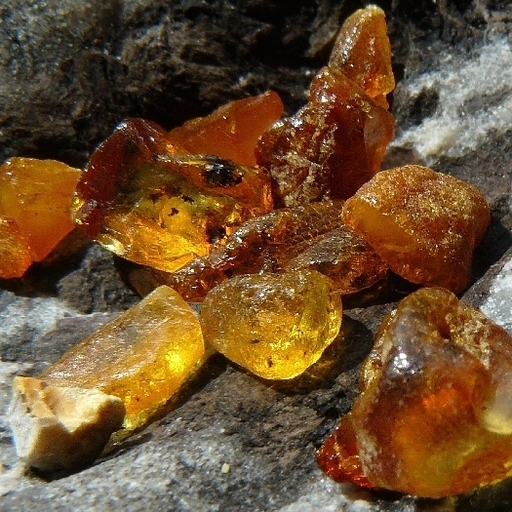
Ancient trade route connecting northern Europe and the Mediterranean (northern Italy). The name is derived from amber (fossilised tree resin), which was one of its main commodities.
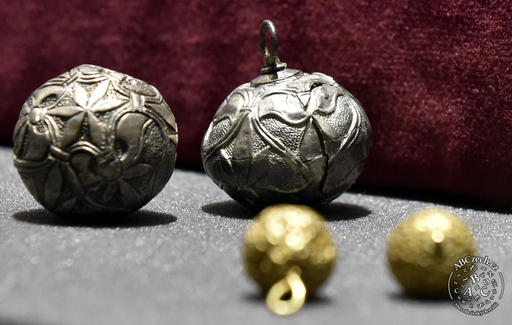
The study of the material sources about the first significant and stable state formation of the West Slavs, which appeared in the 9th century.
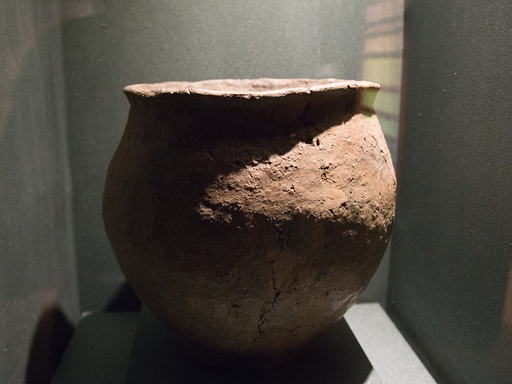
Study of the material culture of people that arrived on the Czech territory especially from the 6th century and which the modern Czech nation identifies as the basis of its ethnic origin.

A cave in the Habrůvka municipality in the protected landscape area of the Moravian Karst. It is one of the most significant archaeological sites on the territory of the Czech Republic. It was named after a bronze bull statuette.

Peoples that were dominant on the Czech territory from the 5th century BC to the 1st century BC. The Czech lands are traditionally regarded as one of the cradles of the Celtic peoples.
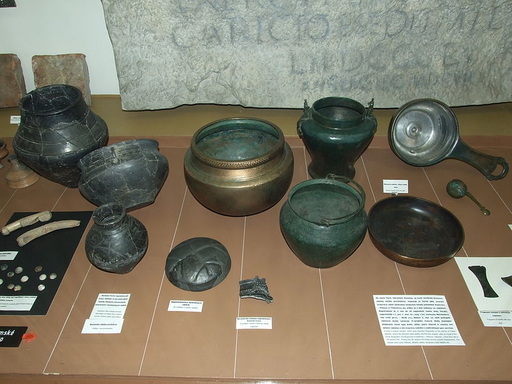
The principal ethnic group living on the Czech territory in the first half of the 1st millennium. The first Germanic peoples came there probably as early as between 70 and 50 BC.
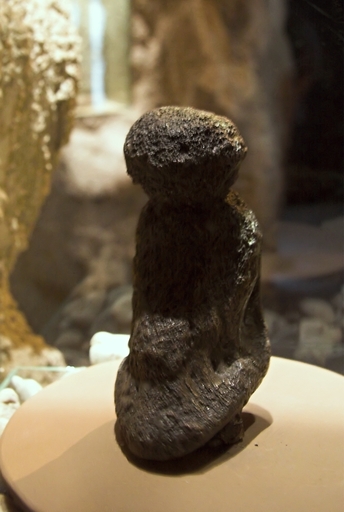
Hunter-gatherer society of anatomically modern humans (Homo sapiens sapiens) living in the middle of the Upper Palaeolithic, or the so-called Gravettian (28 to 18 thousand years BC), whose diet largely consisted of mammoth.
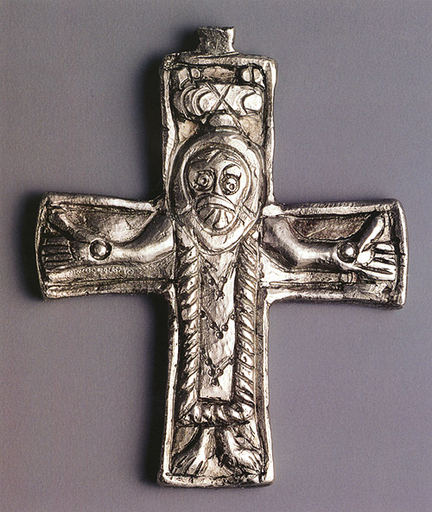
One of the most significant archaeological sites, which flourished during Great Moravia. It is believed that it was one of the centres of the state.
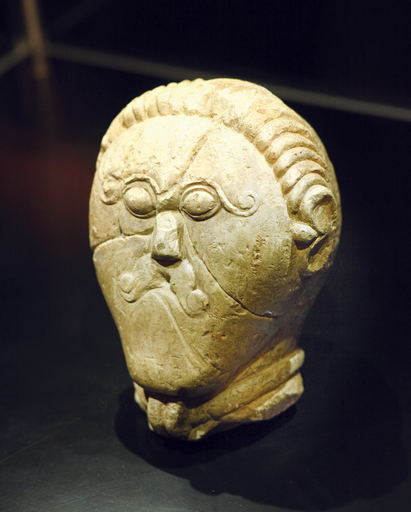
A stone head found in 1943 in Mšecké Žehrovice, in the Rakovník District. It is one of the most significant finds connected with the Celts, on the territory of the Czech Republic as well as in Central Europe.
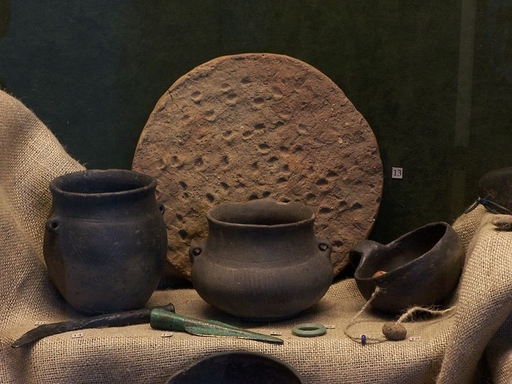
Human societies and their creations known to have been present on the territory of the modern-day Czech Republic in the period following the Stone Age, when people knew how to work metals, approximately between 2200 BC and 6th century AD.
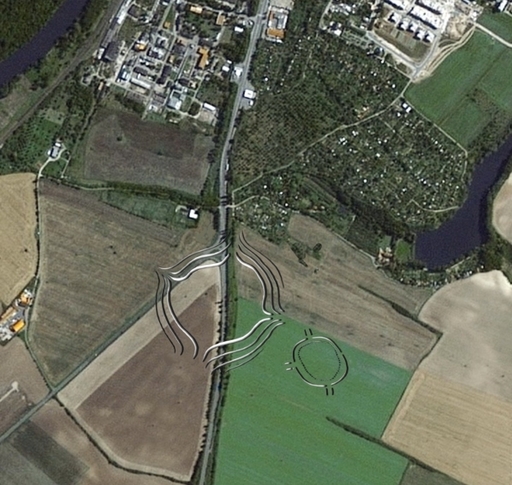
Prehistoric circular structures enclosed with one or more concentric trenches interrupted with two or three, but usually four entrances to the inner space. Examples of such structures exist on the territory of the Czech Republic.

One of the most significant archaeological sites in the Czech Republic, probably a political centre of Great Moravia.

Term denoting a period of prehistory when man produced tools from stone because metals had not been discovered yet. The oldest evidence of human presence on the current Czech territory dates from Stone Age.
2016-2020 ABCzech.cz - © Filozofická fakulta Univerzity Karlovy
Content from this website may be used without permission only for personal and non-commercial purposes and with the source cited. Any other use is allowed only with the authors' consent.
This web application Sonic.cgi meets GDPR requirements. Current information can be found here.